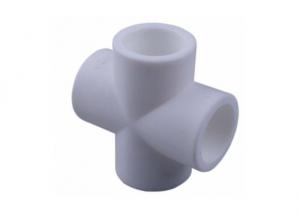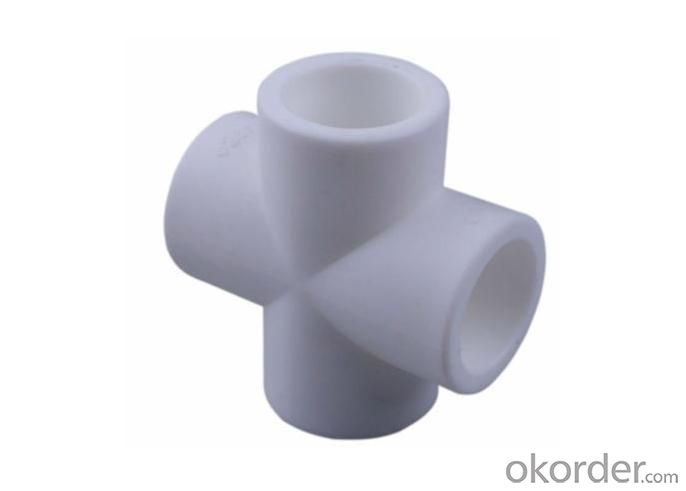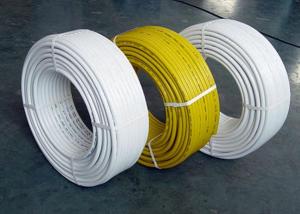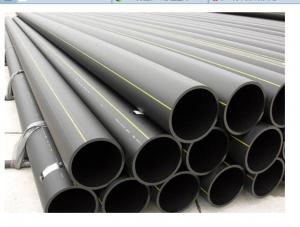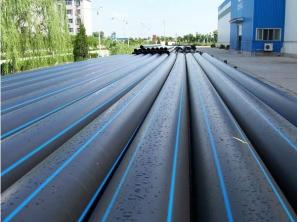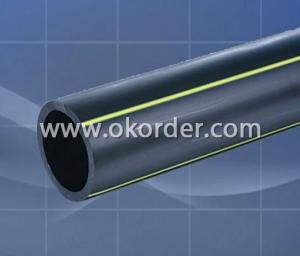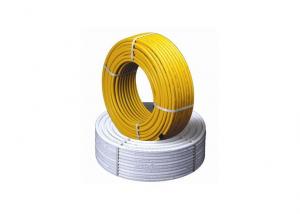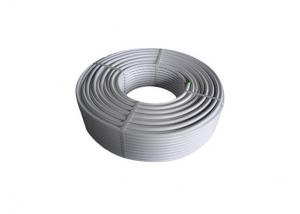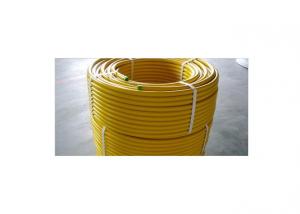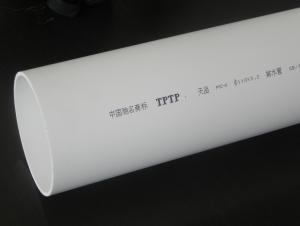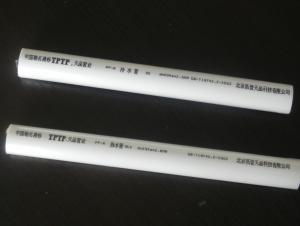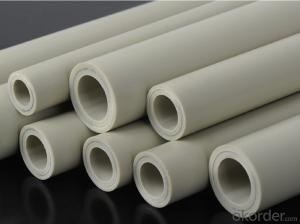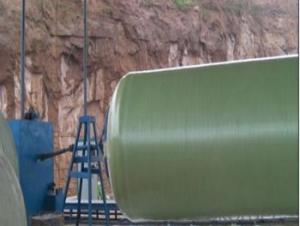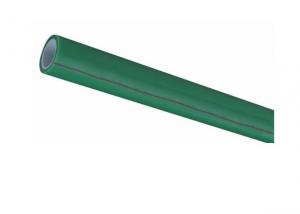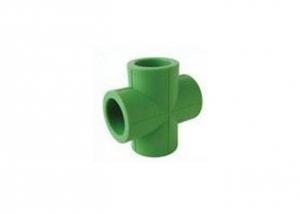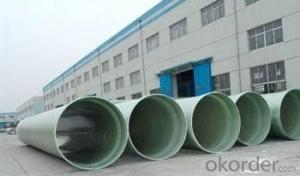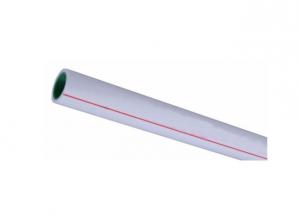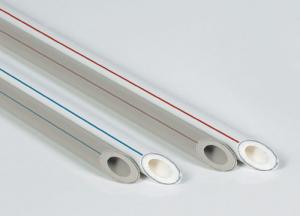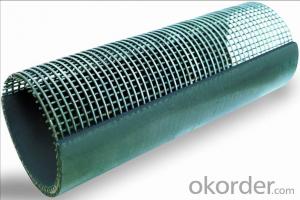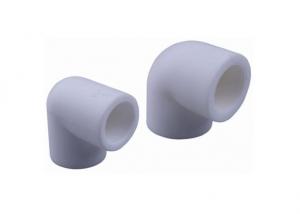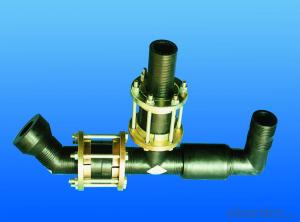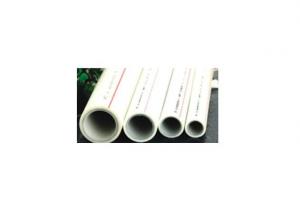Composite PP-R Equal Cross Pipes
- Loading Port:
- China Main Port
- Payment Terms:
- TT or LC
- Min Order Qty:
- 500 Pieces watt
- Supply Capability:
- 100000 Pieces per Day watt/month
OKorder Service Pledge
OKorder Financial Service
You Might Also Like
Features of PP-R Equal Cross:
Material:16 to 63 mm
Sizes: PN2.5Mpa
Colors: Light grey, white or other colors on request
Connection: Welding
Standard: GB/T18742.2-2002; DIN8078
Certification: CE, ISO9001
Applications: Cold or hot water supply, heating system, wall heating and radiating system
Advantages of PP-R Equal Cross:
High Temperature Resistance: the maximum sustained working temperature is up to 70 °C,the maximum transient temperature is up to 95°C
Heat Preservation: low thermal conductivity which is only 1/1500 of brass pipe. And 1/250 of steel pipe.
Non-toxic: no heavy metal additives, would not be covered with dirt or contaminated by bacterium.
Corrosion Resistant: resist chemical matters or electron chemical corrosion.
Lower Installation Costs: light weight and ease of installation can reduce installation costs by as much as 50%over metal piping system.
Higher Flow Capacity: smooth interior walls result in lower pressure loss and higher volume than metal pipes.
Long Life: more than 50 years under normal conditions
Recycled and Environment-friendly
PP-R Pipe Fittings:
Name | Specification | Weight | Package | |
(piece) | (g) | pcs/bag | pcs/ctn | |
Equal Cross | Ø16 | 23 | 50 | 1200 |
Ø20 | 25 | 50 | 1000 | |
Φ25 | 39 | 25 | 500 | |
Ø32 | 52 | 10 | 320 | |
Ø40 | 93 | 10 | 200 | |
Ø50 | 183 | 5 | 100 | |
Ø63 | 322 | 2 | 66 | |
- Q: Can composite pipes be used for food processing facilities?
- Yes, composite pipes can be used for food processing facilities. Composite pipes are made of materials that are resistant to corrosion, chemicals, and bacterial growth, making them suitable for food processing applications. They are also lightweight, durable, and have smooth inner surfaces that prevent the build-up of contaminants, ensuring the safety and cleanliness of the food processing environment.
- Q: How do composite pipes handle ground movement in pipeline networks?
- Composite pipes are designed to handle ground movement in pipeline networks by providing flexibility and strength. The combination of different materials, such as fiberglass and polymer, ensures that the pipes can withstand the stresses caused by ground movement, including soil settlement, earthquakes, and temperature fluctuations. The composite materials used in these pipes offer high resistance to corrosion and have low thermal expansion properties, which further enhance their ability to handle ground movement. Additionally, composite pipes are lightweight yet durable, allowing them to adapt and absorb the impact caused by ground shifts, minimizing the risk of pipe damage and ensuring the integrity of the pipeline network.
- Q: Are composite pipes resistant to ultraviolet degradation?
- Yes, composite pipes are generally resistant to ultraviolet degradation. The materials used in composite pipes, such as fiberglass or carbon fiber reinforced polymers, are inherently UV resistant. This makes composite pipes suitable for outdoor applications where they are exposed to sunlight without experiencing significant degradation or loss of structural integrity.
- Q: What is a polyester fiber composite pipe?
- Polyester fiber refers to the manufacture of fiber material is polyester material; hollow refers to the manufacture of fiber is hollow, like Italy hollow powder, like a tube, there is air in the middle, more conducive to heat insulation. The two are not good, first of all, polyester materials to environmental protection, non-toxic, inexpensive, of course, with such materials can be made in hollow form is better. Maybe that's what you call polyester fibre composite pipes
- Q: Are composite pipes resistant to bacterial growth?
- Yes, composite pipes are generally resistant to bacterial growth. The non-porous nature of composite materials prevents the growth and colonization of bacteria, making them a suitable option for applications where bacterial growth needs to be minimized or eliminated.
- Q: How long is the welding time of the wire mesh composite pipe?
- Handle the pipe under the light should be lifted and handle, prohibited in the groove drag, rolling, or with forklifts, forklifts, tractors and other hauling pipe.
- Q: How do composite pipes handle pressure surges?
- Composite pipes are designed to effectively handle pressure surges due to their unique construction. The combination of different materials in composite pipes, such as fiberglass and thermoplastics, provides enhanced strength and flexibility. This allows them to absorb and distribute the impact of pressure surges more efficiently than traditional pipes. Additionally, the composite materials used in their manufacturing are resistant to corrosion, further enhancing their durability and ability to withstand pressure fluctuations.
- Q: Are composite pipes suitable for power plant cooling systems?
- Yes, composite pipes are suitable for power plant cooling systems. Composite pipes offer several advantages such as corrosion resistance, high strength-to-weight ratio, and excellent thermal insulation properties. These qualities make them ideal for carrying cooling fluids in power plant systems, ensuring efficient and reliable heat transfer while minimizing maintenance and operational costs.
- Q: Are composite pipes suitable for petrochemical industries?
- Yes, composite pipes are suitable for petrochemical industries. Composite pipes offer several advantages such as high corrosion resistance, lightweight design, and excellent mechanical properties, making them ideal for handling various chemicals and fluids in petrochemical processes. Additionally, their insulation properties help maintain the temperature of the transported substances, ensuring efficient and safe operations in the petrochemical industry.
- Q: Do composite pipes have a smooth interior surface?
- Yes, composite pipes typically have a smooth interior surface.
1. Manufacturer Overview
| Location | Zhejiang, China |
| Year Established | 2004 |
| Annual Output Value | |
| Main Markets | North America South America Eastern Europe Southeast Asia Africa Oceania Mid East Eastern Asia Western Europe |
| Company Certifications | CE;ISO9001:2000 |
2. Manufacturer Certificates
| a) Certification Name | |
| Range | |
| Reference | |
| Validity Period |
3. Manufacturer Capability
| a) Trade Capacity | |
| Nearest Port | |
| Export Percentage | 31% - 40% |
| No.of Employees in Trade Department | |
| Language Spoken: | |
| b) Factory Information | |
| Factory Size: | 10,000-30,000 square meters |
| No. of Production Lines | 6 |
| Contract Manufacturing | OEM Service Offered Buyer Label Offered |
| Product Price Range | |
Send your message to us
Composite PP-R Equal Cross Pipes
- Loading Port:
- China Main Port
- Payment Terms:
- TT or LC
- Min Order Qty:
- 500 Pieces watt
- Supply Capability:
- 100000 Pieces per Day watt/month
OKorder Service Pledge
OKorder Financial Service
Similar products
Hot products
Hot Searches
Related keywords
